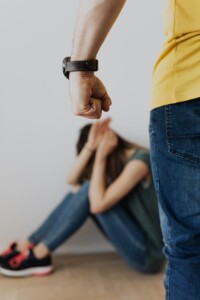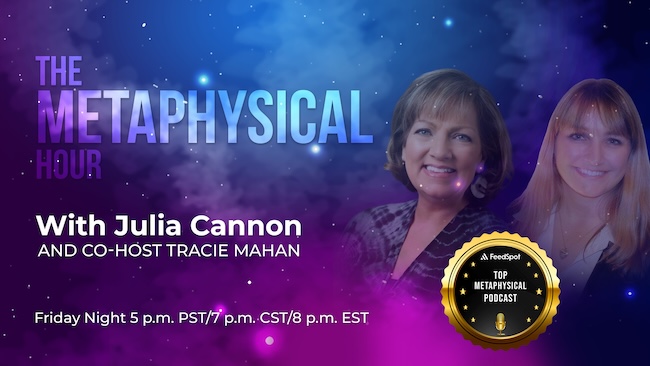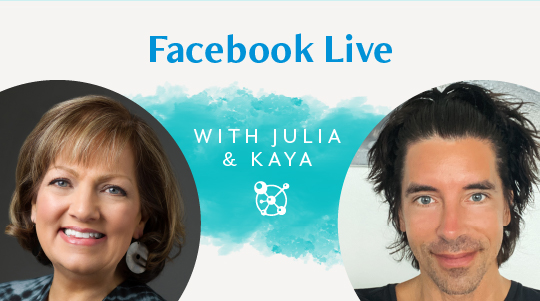A lot of the time we don’t realize that we are being abused if there is no physicality. In school, the bullies who usually got in trouble were the ones who left a mark on their victims. The ones who got away with it were those who verbally tormented their peers when no one could hear -unless they had the guts to speak up. But, speaking up would mean those victims would have to understand that they were being bullied. In this article, we will discuss the signs of an abusive relationship. It is essential for us to equip ourselves with knowledge – awareness is key. The first steps towards breaking away from an abusive relationship.
Table of Contents
How do you know if you are in an emotionally abusive relationship?
Emotional abuse is often overlooked, you tell yourself that you’re are just overly sensitive. Over time you may even start to believe all the negative things your abuser says about you, and that their patterns of abusive behavior are actually normal. In relationships, having an emotionally abusive partner can be particularly hard to identify. Not knowing if your problems are general couple’s problems or if you are being downright manipulated.
There might come a time where you wonder, “am I in an emotional relationship?” This is a good start, you have not been brainwashed yet. In order to avoid that happening, luckily, there are signs you’re in an emotionally abusive relationship and we’ll cover them below.
What is the legal definition of emotional abuse?
“Emotional abuse, also known as psychological or mental abuse, is a harmful form of abuse that often plays a role in many family law cases. Emotional abuse involves exposing a person to behavior or language, through verbal speech-based harassment, that can result in psychological trauma.”
https://www.legalmatch.com/law-library/article/emotional-abuse-laws.html
 10 warning signs of an abusive relationship
10 warning signs of an abusive relationship
Emotional abuse can seriously lower your self-esteem, and in turn, has a negative impact on your mental health. It can make you confused about your ideas of what love is. Abusive relationship signs can seem hard to identify in the beginning because love is brilliant – yet binding. If you think this is your situation, we have made a list of the warning signs of an emotionally abusive relationship.
1. Raised Voices
It is natural for couples to yell at each other from time to time. We all have our own triggers and length of the fuze. Yet if you were in a healthy relationship your partner shouldn’t feel the need to resort to yelling within every discussion or disagreement. This is a red flag for a power struggle, as one single raised voice drowns out the other – what better way to shut down a point of view than being louder so they cannot be heard. Emotional abuse does not necessarily come hand in hand with physical violence but it does happen.
2. Overly Controlling
Emotional abusers will try to make you believe they know what’s best for you. At first, it will start with them being concerned for your safety, next thing they’ll be tracking your credit card purchases. Their controlling behavior, with even the slightest negative comment, can fill you with self-doubt, which can be debilitating to your independence. Their possessiveness of your time limits you, and can even make you unsure of what you really want to do.
3. Shutting Down
No one likes to be ignored. During a disagreement, emotional abusers will sometimes go mute – refusing to discuss things further. This can be heartbreaking if the topic is dear to you. not only that but they will go through periods of being distant or absent, even though they’re physically present. This can lead you to feel like you don’t matter or dispensible.
4. Disappointment or disgust.
If you are in a healthy relationship a conversation should be two-sided and respectful. If contempt becomes a theme in your relationship it will result in nasty reactions like loss of interest, sarcasm, name-calling, or egotistical retorts. This verbal abuse is belittling coming from any loved one, like a romantic partner to a family member.
5. “If, Then” Statements
“IF you go out with your friends, THEN I will leave you”.
To some of us this is is an eye-roll type of statement. but to victims of emotional abuse, it can seem life-threatening. These threats are blackmailing intimidation tactics and they go hand-in-hand with your abuser’s need to control everything. Their intention is to take away your choice, make you feel like you’re obligated to stay – especially if the threats are of self-harm.
6. Overly Defensive
Your conversations cannot flow smoothly if it is constantly blocked by defenses. Positivity can be achieved by being open and honest with each other. If you feel you have to constantly defend yourself over the battering then that s a red flag for an emotionally abusive relationship.
7. Unpredictable Moodswings
We all have tempers and off-days. But if your everyday lives are hindered by these moods it can be seriously confusing. This battering leads you to walk around on eggshells, hoping not to trigger an outburst. Often this type of abuser will reel you back in after they explode on you unnecessarily, showering you with apologies, declarations, gifts, and more.
8. Gaslighting
This form of verbal abuse is belittling, to say the least. This is where your abusive and intimate partner will attempt to make you feel like you are crazy, or the reason for blame. If you express an idea and experience even just the slightest put-down from your partner, they are psychologically manipulating you into thinking you were wrong all along. This type of abuse requires no physical force, it is a verbal type.
9. Loneliness
Emotionally abusive partners want you all for themselves. They don’t want you to be happy outside of their company so they try to convince you that your friends are against you, no one really loves you besides them, or that they are the only ones who will understand you. This is an isolating feeling which can be hard on your mental health. Over time you almost start to believe your partner’s niggling statements that you start to recluse, avoiding them altogether.
10. Guilt
Due to the gaslighting, victims of emotional abuse often believe they are the reason for all the trouble in their relationship. They are made to believe they are to blame. This is accompanied by feelings of guilt or shame at having caused this negativity between the two of you.
Explain here, also add a link to the “how to deal with jealousy” post with that exact anchor text. (???)
 Warning signs that someone is in an abusive relationship
Warning signs that someone is in an abusive relationship
Often close family members or friends are the ones to notice something is off. Your friend might be struggling with a battering of emotional abuse and sometimes they may need our help to become aware of what’s happening so they can take control of their life again.
1. They start dressing differently
Your friend’s style choice s quite revealing, to say the least. But she has always loved dressing that way so you don’t overthink it. Until all of a sudden, her get-up is completely swathed in unflattering, oversized clothing. This red flags that their partner is acting jealous and controlling what they are allowed to wear.
2. Their partner won’t let them hang out
We are all familiar with the honeymoon phase when you enter a new relationship. You just can’t get enough of each other. But the red flag should be when your friend’s new partner seems to be convincing them not to spend time with you, and probably all your other mates.
3. Your friend is uncharacteristically unhappy
Your friend demeanor has always been pleasant and generally happy – besides the only human down moments. But lately, they have been moody, defensive, and seem to generally be at a low. This could be a sign that she is experiencing emotional abuse at home or even from co-workers at work.
 4. Often covered in “random” and cuts or bruises
4. Often covered in “random” and cuts or bruises
Domestic violence is experienced in so many homes. You can excuse the occasional bruised knee if your friend is notoriously clumsy, but if they are showing up at work with grab marks on their arm, it is a sure sign they are being abused.
5. Feeling uneasy around their partner
Trust your gut. You know your friend better than you realize and feeling uncomfortable around their partner is your instincts flaring up, shooting out warning signals which are similar to symptoms of anxiety.
6. Forgets their own needs
An emotional abuser does not react well to rejection. This means that your friend might struggle to prioritize their own needs as they are constantly trying to please their partner.
7. How badly does he speak to them?
This might be the most obvious red flag but a lot of people turn a blind eye when heated words are used as it makes them uncomfortable to “get involved” in a domestic dispute. But if your friend’s partner is constantly speaking down to them, constantly disagreeing and turning the discussion into an argument, belittling them in any way, then there is a sure possibility your friend is being emotionally battered when doors are closed.
What to do if you are in an abusive relationship
There are many different types of abuse and respective hotlines, and support groups available for those who need it, online and off. If you feel that you are in an emotionally abusive relationship, you can contact the National Domestic Violence Hotline, where they offer support, o you can learn more about how emotional abuse works against you and your mental health, and how important it is to be aware and get help whenever you deem it necessary.
www.thehotline.org
Abusive relationship signs: Key takeaways
Abusive relationship signs” are not apparent at first as the abuse often progresses slowly. It is important to remember that emotional abuse may escalate should you wish to leave your abusive partner. Always ensure you have a support system of friends, or your family, who can assist with your escape plan. If it is your friend that you are worried about, make sure you approach the situation delicately, being careful not to make them feel the need to put up defenses or feel the need to avoid you and your concerns.
FAQs
 What is the difference between mental and emotional abuse?
What is the difference between mental and emotional abuse?
Where mental abuse can hamper the way one thinks, in terms of their cognitive capabilities or functionality, and emotional abuse negatively impacts the way one feels, about themselves and others.
What are the 4 stages in the cycle of abuse?
- Tension-building phase – This is where friction happens between a couple as the tension starts to rise. The abusive partner will show passive-aggressive behaviors which may result in abusive reactions. The victim’s own behavior might change in an attempt to prevent any abusive reactions from their partner. This might happen consciously or subconsciously.
- Incidence of abuse – This is when the act of abuse occurs. Whether it be physical, mental or emotional abuse.
- Reconciliation – This is where the abuser will try to lure their partner, or choice of the victim back in with apologies and declarations, and sometimes even threats used to manipulate or deter their victim from leaving them. Also known as the honeymoon phase.
- Calmness – This is the time where it almost seems as if your abuser has really learned their lesson. They are kind, considerate, and honestly seem remorseful over their previous actions. This phase is short-lived though, and the cycle starts again from the tension-building stage.
What makes a person abusive?
Many people will tell you it’s excessive drinking or indulging in substances that cause a person to become abusive. These things may trigger abusive behavior but they are not the root cause. Most of the time, abusive behavior is a learned behavior. It is something that most of us witness at some point in our lives, in its various forms. But ultimately, how to act on your perceptions is a choice.
What is narcissist abuse syndrome?
This is when someone has been with a narcissist for a long while and they start to develop negative thought patterns and behaviors like self-doubt, or self-consciousness.
Is Abusive a character trait?
Jealousy, blaming, overly-controlling, moody, overly sensitive are all character traits of an abusive person.
Interested in becoming a QHHT Practitioner?
Find out how YOU can become a QHHT Practitioner. We offer an entire online course journey to get you started, growing, and achieving your goals.

Jade Small
I am a creative and a wanderer. Mysteries and connections are what inspire me to write. While on my path, my purpose is to bring you information to help inspire you on your journey on this place called earth.
See more from these categories
Read similar posts

Wondering How to Trust the Universe When Things Go Wrong? It’s natural to feel lost when life doesn’t go as planned. However, learning how to have faith in the universe can transform your perspective. This practice involves believing…Read More»

In the realm of metaphysical literature, few names resonate as profoundly as Dolores Cannon. A luminary in the world of hypnosis and regression therapy, Dolores Cannon captivated readers with her unique ability to unlock the…Read More»









Leave a Reply
You must be logged in to post a comment.